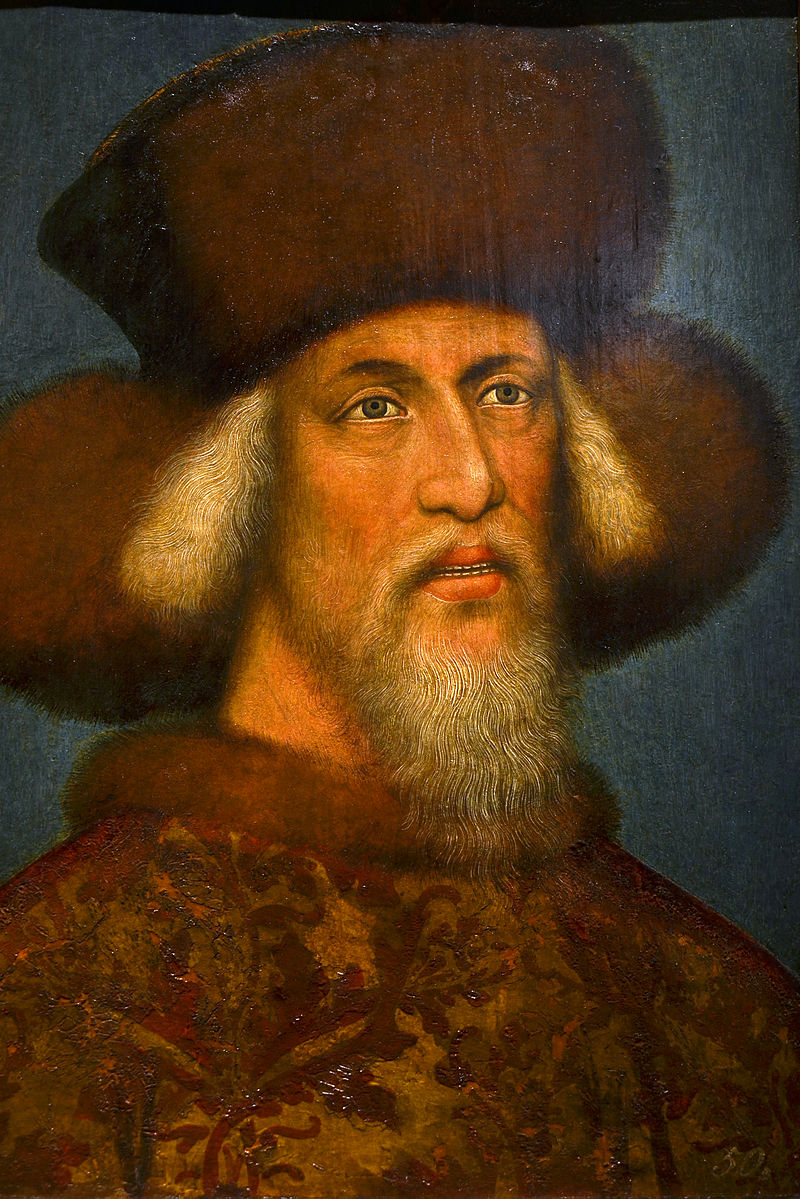Díky za článek, stejně jako za Všechny ostatní. Rád si je vždy přečtu. 
28.7. 1420 Coronation of Sigismund as King of Bohemia
Categories: Personalities , Calendar

Sigismund became King of Bohemia in the presence of an incomplete number of lords and Prague's constables. At the same time, he knighted many knights who had no knightly deeds behind them. But the ceremonial act was useless to Sigismund anyway.
The fruitless conquest of Prague Castle made it difficult to defend the rebellious metropolis, which was besieged by a Crusader army of some thirty thousand men in late June 1420. After a few minor skirmishes, the Crusader cavalry attacked the fortresses on Vítkov Hill on 14 July. The brave resistance of the Tabor garrison led by the governor Žižka, with the help of Prague reinforcements, turned the Crusaderthe Crusaders to retreat and to a large extent decided the overall failure of the First Crusade.
The negotiations of the papal legate Fernando with the university masters behind the backs of the radical allies also ended unsuccessfully for Sigismund. To top off all the grievances, a fire in one encampment caused panic among the disgruntled crusaders. "Sigismund had himself hastily crowned king of Bohemia in St. Vitus' Cathedral, and at the end of July 1420 he and the crusaders leftCzech troops," write Jaroslav Pánek and Oldřich Tůma in their book History of the Czech Lands.
In fact, the coronation as King of Bohemia took place almost secretly. "Zikmund was admitted to Prague Castle by the two leading Czech lords, Čeněk of Vartenberk," Jaroslav Čechura notes in his book The Royal Trilogy.
Sigismund became King of Bohemia in the presence of a small number of lords and Prague's constables. At the same time, he knighted many knights who had no knightly deeds behind them. On the same day, Sigismund ordered the jewels to be taken out of the Prague church and the monastery of St. George and broken in order to pay the new knights their rents.
But the ceremonial act was of little value to Sigismund anyway. The Hussite majority of the nation did not accept him as king anyway. No sooner had the danger passed than the Old Caliphs and the university masters attempted to wrest decisive influence in the country from him. To offer the vacant throne to the Polish king Vladislav Jagollonian, they obtained the consent of Jan Žižka, in alleverything else, however, they encountered determined opposition from the Tabor leaders and their New Town allies.
Through pressure actions and new attacks on the monasteries, the camps in August forced not only the acceptance of the twelve harsh demands, but also the replacement of the conseilles at the Old Town Hall. The superiority of the forces of the radical Hussite front was not to last long.
"After the departure of the camps to the South Bohemian battlefields, the revolutionary councils in the Prague towns lasted only three months. The victory over King Sigismund, which the Praguers, with the help of the East Bohemian Orebites, achieved on 1. November 1420 in the Battle of Vyšehrad, heralded the rapid rise of their power in the following three years," Pánek and Tůma write.
Jaroslav Pánek and Oldřich Tůma, History of the Czech Lands, Vladimír Liška, Václav IV - mysteries and mysteries, Jaroslav Čechura, The Royal Trilogy, www.wikipedia.org
The article is included in categories:





